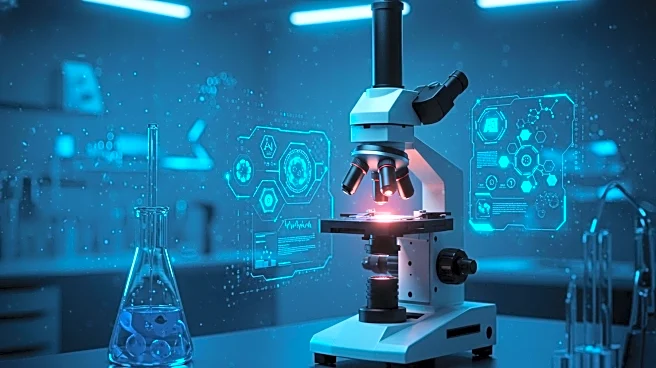What's Happening?
A recent study published in The Lancet has revealed that doctors who rely on artificial intelligence (AI) tools for cancer detection may experience a decline in their diagnostic skills when the AI is removed. The study, conducted at four endoscopy centers in Poland, tracked the success rates of colon cancer detection before and after the introduction of AI tools. It found that doctors who performed colonoscopies without AI assistance after having used it saw a 20% drop in detection rates compared to their performance before AI was introduced. The study involved 19 experienced doctors, each with over 2,000 colonoscopies performed, highlighting the potential for de-skilling even among seasoned professionals.
Why It's Important?
The findings underscore the potential risks associated with over-reliance on AI in medical settings. While AI tools can enhance diagnostic accuracy, they may also lead to a reduction in critical thinking and problem-solving skills among healthcare professionals. This could have significant implications for patient outcomes, particularly if AI tools are unavailable or malfunction. The study raises concerns about the long-term impact of AI on medical practice, suggesting that while AI can be a valuable aid, it should not replace the fundamental skills of healthcare providers.
What's Next?
The study's results may prompt healthcare institutions to reconsider how AI tools are integrated into medical practice. There could be increased emphasis on training programs that balance AI use with the development of traditional diagnostic skills. Additionally, further research may be conducted to explore ways to mitigate the de-skilling effect observed in the study, ensuring that doctors maintain their proficiency even when AI tools are not in use.
Beyond the Headlines
The study highlights broader ethical and professional considerations regarding the use of AI in healthcare. It raises questions about the responsibility of medical professionals to maintain their skills and the potential dependency on technology. As AI continues to evolve, the medical community may need to address these issues to ensure that patient care remains effective and reliable.









